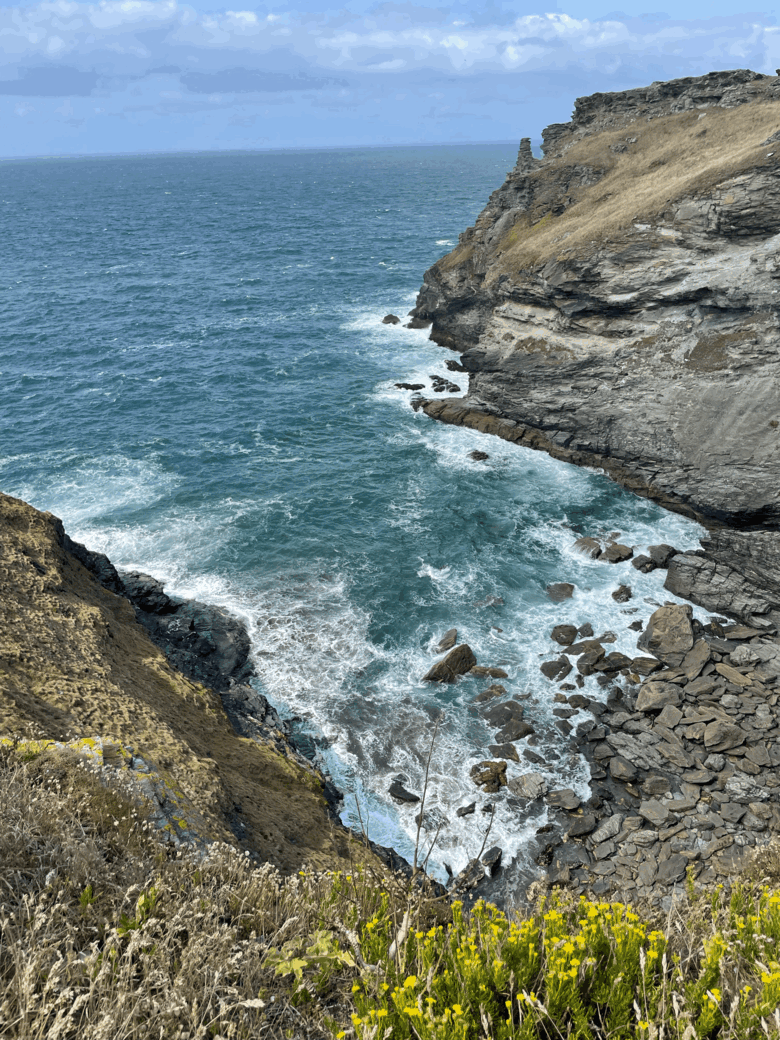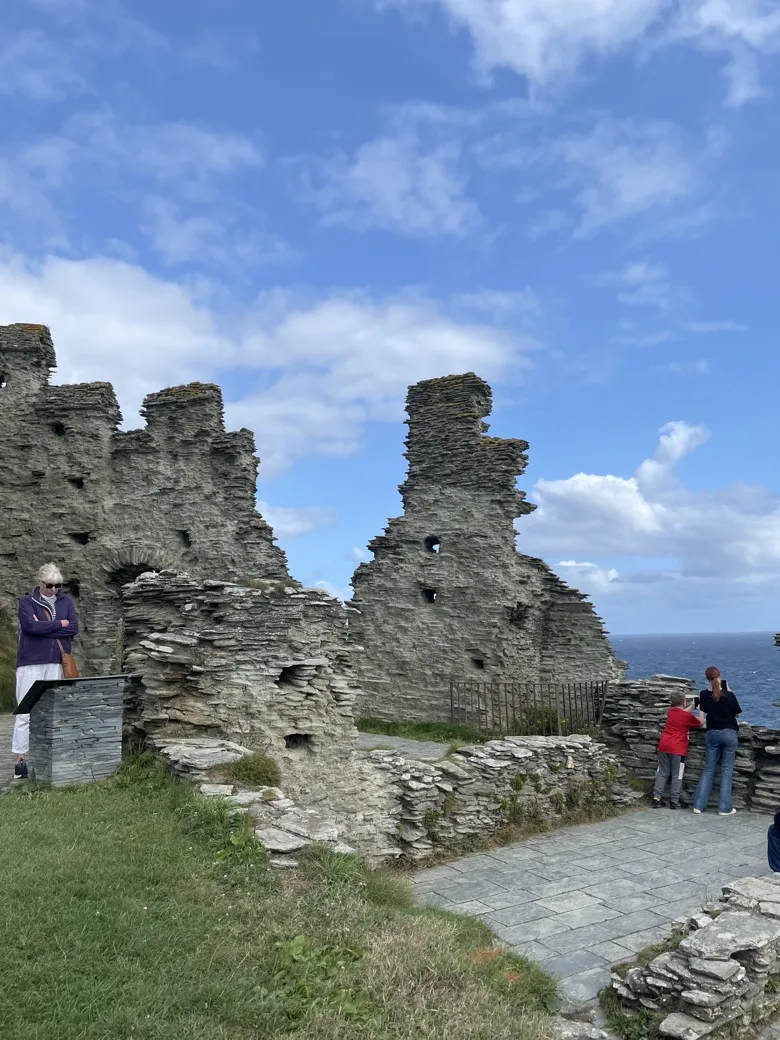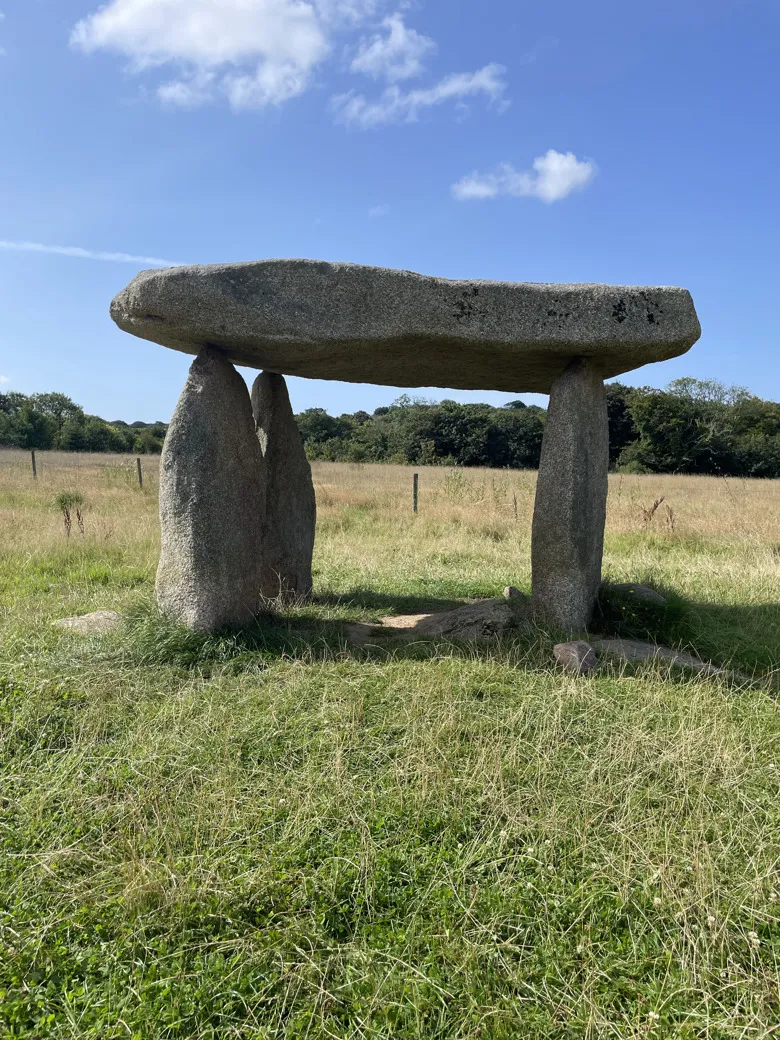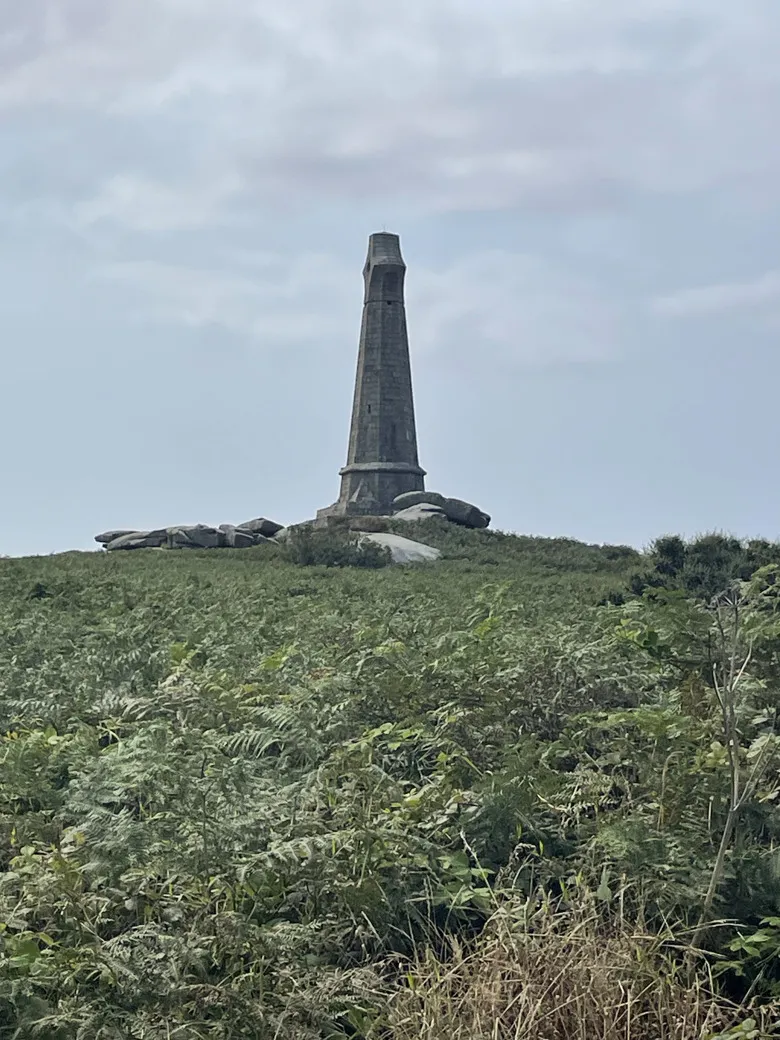A Journey Through Cornwall’s Past

I spent some time in Cornwall recently, and as usual, I found myself drawn to the oldest parts — the stones, the ruins, the places that make you stop and wonder: "why here", and "who stood here before me"?
There’s something about Cornish history that feels both deeply practical and quietly eerie. Like the people who built those places had good reason — defensible cliffs, trading routes, sacred alignments — but left behind traces that still stir something in you.
I visited Tintagel, Carn Brea, and Carwynnen Quoit. You have probably heard of Tintagel but possibly not the other two, but that doesn't mean they are any less important: in fact they are just as important but in different ways.
These places are not just photo spots — they ask questions just by being there. Just by standing on the ruins or in the fields it feels eerie, sort of like I am being watched.

Carwynnen Quoit
Also known as “The Giant’s Quoit,” this Neolithic dolmen was built as part of a burial chamber over 5,000 years ago. It seems so strange that this is still here 5000 years later.
There are folklore tales surrounding it of course, for example the story of giants hurling the stones into place. But in reality it had a more practical role in marking the resting place of the dead.

Carn Brea
Carn Brea was once home to a Neolithic settlement and later an Iron Age hillfort. It also has some quite gruesome tales to be told about how it has been used over the centuries, but how true these are I don't know!

I found myself wondering why they were built, who created them, and how those people felt when they had finished. I wondered what it was like to live in them, or near them, and how those people lived.
I’ll never know the answers to all of that — but just the fact that these places are still here to be found… that’s enough.
Well, it is for me.